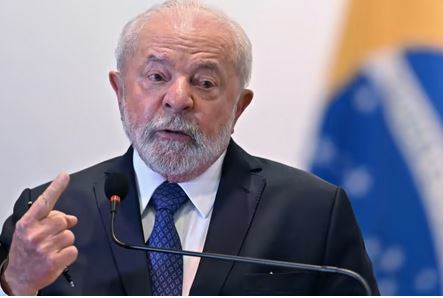
BRASILIA, Aug 23 (NNN-AGENCIES) — Brazil’s Congress passed new fiscal rules Tuesday ending the government’s spending cap, a win for President Luiz Inacio Lula da Silva in his bid to free up money for social and infrastructure spending.
Lula, who returned to office in January after leading Brazil through a boom in the 2000s, needed Congress to pass the bill to allow his administration to keep its promises of expanded social programs and an ambitious 1.7 trillion reais ($340 billion) infrastructure investment program unveiled earlier this month.
The lower house of Congress, which had passed a first version of the bill in May, adopted the final text by a vote of 379 to 64, after an amended version passed the Senate in June.
The new rules end the rigid government spending cap put in place in 2016 under the administration of then-president Michel Temer.
Lula’s administration says the government needs to be able to spend more to address pressing social needs and reboot growth in Latin America’s biggest economy, and argued the spending cap had been breached so often it had lost credibility.
The new rules allow government spending to increase at 70 percent the rate of increase in government revenues, as a tool to chip away at the deficit.
The legislation “is important, because it indicates greater fiscal discipline, or at least a plan, on the part of the government,” said economist Andre Perfeito of consulting firm Necton.
“But there’s a lot of doubt about the capacity to stick to the plan, because it will depend a lot on capturing tax revenue. There will still be a lot of discussion over whether or not they’ll meet the targets they themselves set,” he said.
Since returning to power in January, Lula has revived and expanded popular social programs launched during his first presidency (2003-2010), many of which were slashed under Temer (2016-2018) and ex-president Jair Bolsonaro (2019-2022).
But Brazil’s economic outlook is far less favorable than in the 77-year-old ex-metalworker’s first two terms, when booming Chinese demand for Latin American commodities exports fueled breakneck growth.
Lula has sought to reassure markets he will not let government spending balloon out of control, promising a balance of “fiscal, social and environmental responsibility.”
Brazil’s economy grew a stronger-than-expected 1.9 percent in the first quarter, Lula’s first three months in office.
Ratings agency Fitch upgraded Brazil’s debt rating in July, from BB- to BB, citing “better-than-expected macroeconomic and fiscal performance” and an “expectation that the new government will work toward further improvements.” — NNN-AGENCIES






